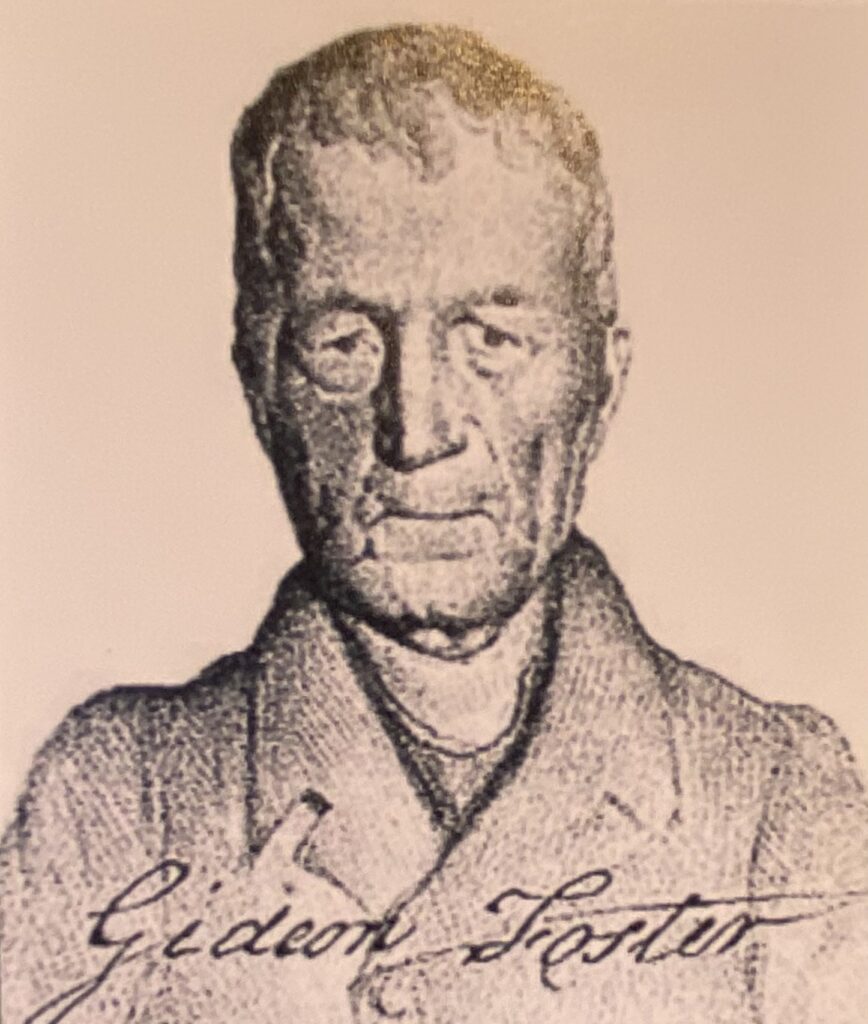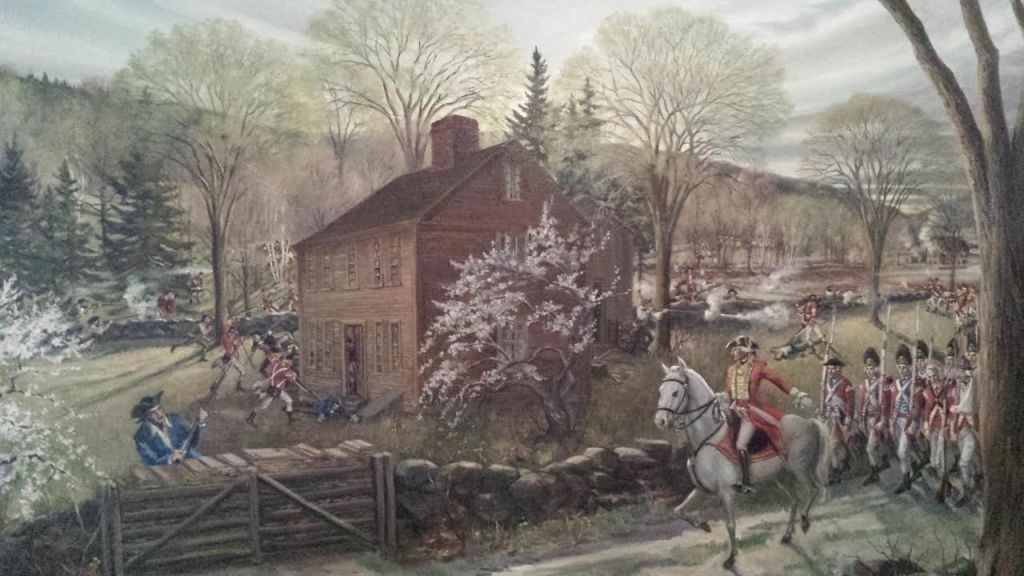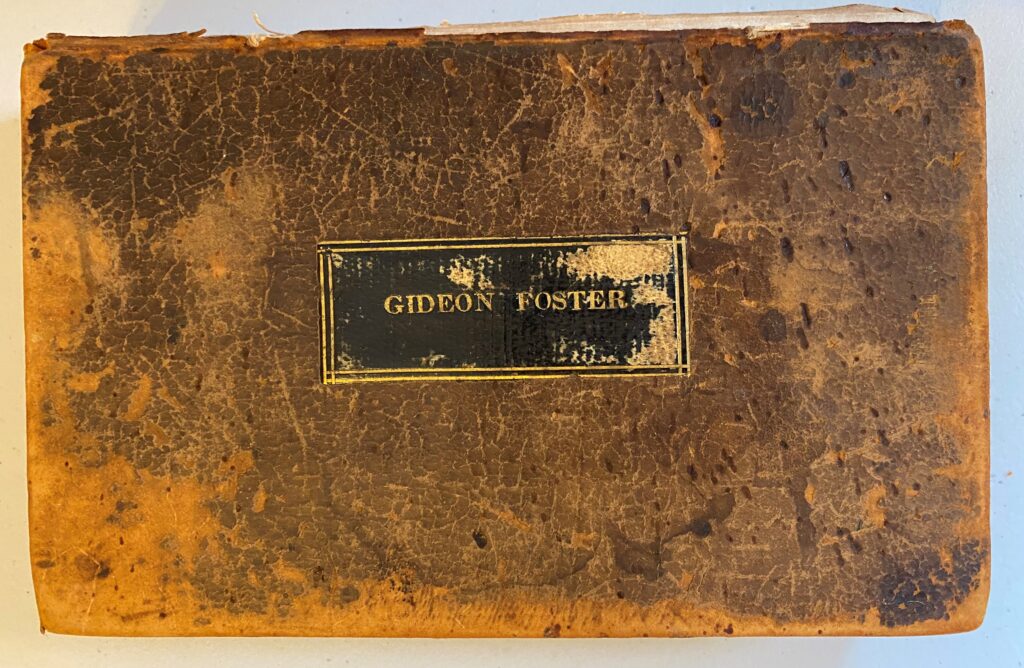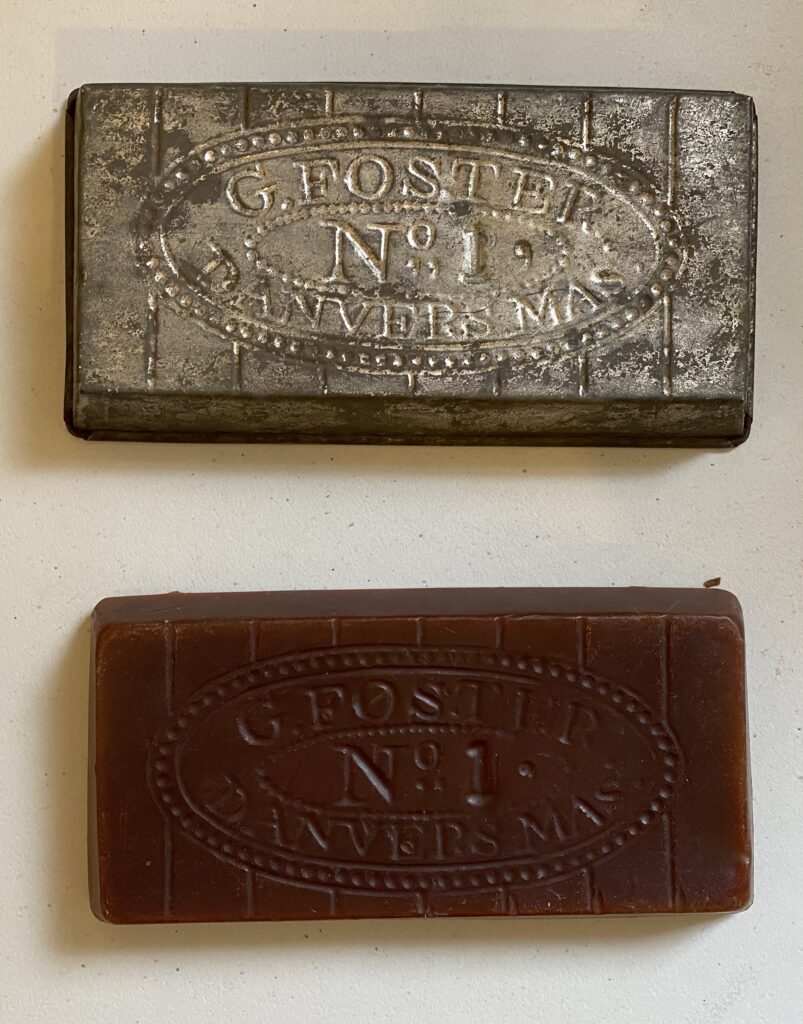
March 7, 1836
Work of M. C. Torrey and B. F. Nutting
Peabody’s own General Gideon Foster was born February 24th, 1749 – making him 273 years young today.
He was born to Lydia Goldthwaite and Gideon Foster. The Goldthwaite family settled in the Foster Street area of Peabody beginning around 1700. The family’s home was located at the corner of Peabody Square and Foster Street, where the municipal parking lot is today. Foster Street was named after General Gideon Foster in 1843.
Gideon Foster was 26 years old at the dawn of the American Revolution. Ten days prior to the Battle of Lexington, he was named Captain of Peabody’s Minutemen. On April 19, 1775, Foster led his men to West Cambridge, now Arlington. His company traveled sixteen miles, and the journey took four hours.

Once there, they fought valiantly at the Battle of Menotomy, at the homestead of Jason Russell. The British troops were retreating from the Battle of Lexington and attempting to return to downtown Boston. The fighting was bloody and at close range. Seven Danvers and Peabody men gave their lives at this Battle. Foster’s men were outnumbered and flanked at all sides by British troops. However, they inflicted many injuries as the British troops passed. Foster led his company admirably.
Foster delivered ammunition to Charlestown during the Battle of Bunker Hill, and he also fought at the Siege of Boston. Foster continued to serve with distinction and rose in the military ranks after the Revolutionary War. He was made Colonel in 1792, Brigadier General in 1796 and Major General in 1801.

During this time, he also held political office. He was town clerk from 1791 to 1794. Foster was elected as the Representative to the General Court in 1796, and from 1799 to 1806.

In his professional life, he operated Goldthwaite’s Brook to power three mills: a bark, grist and chocolate mill. Unfortunately, his mills burned on two occasions. The second fire happened when he was 79. Deciding not to start over, he sold his Foster Street property to Zechariah King and moved to an 80-acre farm at 138 Lynnfield Street for the remainder of his life. Foster left a positive impact on his community and was well regarded upon his death at the age of ninety-seven on November 1, 1845.
